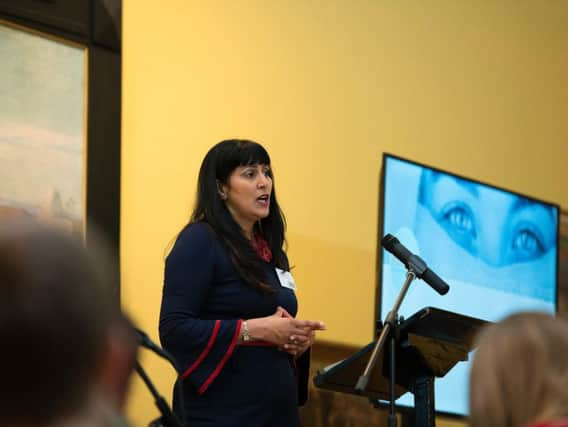International UCLan-led study reveals anti-gay violence abuse is still acceptable in some countries


New research, published in The Journal of Interpersonal Violence by the Honour Abuse Research Matrix (HARM) at the University of Central Lancashire analysed attitudes to violence against the LGBT community in five countries; India, Pakistan, Malaysia, Iran and England.
The international study recruited 922 students, aged between 16 and 61, in four Asian countries, as well as Asian British and White British students in England. Of these, 511 were female and 410 were male.
Advertisement
Hide AdAdvertisement
Hide AdThey all read a specific brief depicting a man whose relatives verbally abuse him and threaten him with life-threatening violence, after suspecting that he is gay and has joined an online dating website to meet men.
They then completed a short questionnaire that assessed the extent to which they thought the man’s actions had damaged his family’s honour and their approval of the anti-gay honour abuse depicted in the scenario.
Results broadly matched predictions that anti-gay violence is more supported in countries with strong honour cultures and adds more to the conversation around why anti-gay violence still exists.
Men were more likely to be accepting of anti-gay violence than women, whilst respondents educated to university degree level were more likely to find anti-gay violence unacceptable.
Advertisement
Hide AdAdvertisement
Hide AdComparisons made with a British White sample provides further insight into honour values in Asian and Western populations. British Asian participants were more likely to endorse anti-gay values than British White respondents. In relation to the international findings, the highest level of anti-gay attitudes were endorsed by respondents from Pakistan and India. Respondents from Iran and Malaysia were less endorsing of anti-gay violence than respondents from other nations and their scores overall were similar to those of British Whites.
Dr Roxanne Khan, director of the HARM Network, worked with researchers from the University of Bolton, Monash University, University of Kent and the Aga Khan University on the study.
She said: “In a world where at least 69 countries still have national laws criminalising same-sex relations and anti-gay violence is on the rise, with countries such Brunei recently introducing new anti-gay laws, we feel this research is vital to make steps towards understanding perceptions of anti-gay honour abuse.
“Our results found that older, religious, less educated, and married individuals would endorse anti-gay honour abuse more than younger, non-religious, more educated, and unmarried people.
Advertisement
Hide AdAdvertisement
Hide AdWe also found that participants from all four Asian nations and British Asians would be more endorsing of the damage to honour and more accepting of anti-gay honour abuse than British White participants.”